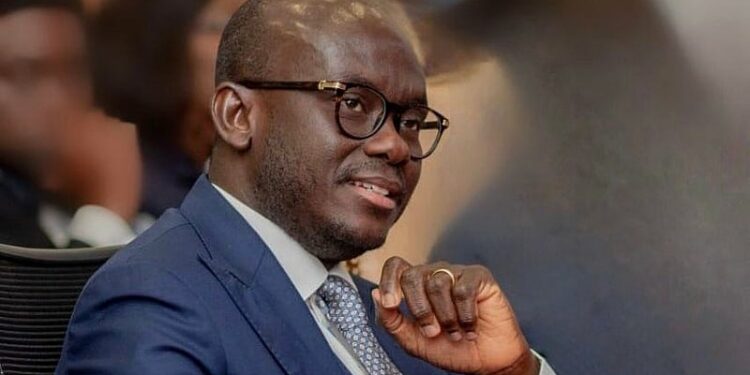Ongoing criminal case following revocation of licenses of some banks in the country
Following the revocation of the licence of UT Bank Ghana Ltd (UT Bank), the Attorney-General initiated criminal proceedings against certain shareholders, directors and employees of UT Bank as well as former officials of the Bank of Ghana (BoG).
The charge sheet filed at the Accra High Court on 5th February 2020 named as accused persons Dr. Johnson Asiama; a former 2nd Deputy Governor of BoG, Raymond Amanfu; a former Head of the Banking Supervision Division (BSD) of BoG, Catherine Johnson; Head of Treasury of the UT Bank, Mr. Prince Kofi Amoabeng, a former Chief Executive Officer of UT Bank, Robert Kwesi Armah; General Manager of Corporate Banking of UT Bank and UT Holdings; the parent company of UT Bank.
The trial judge is His Lordship Justice Bright Mensah, a Justice of the Court of Appeal sitting as an additional High Court judge.
Dr. Asiama and Mr. Amanfu have been charged with willfully causing financial loss to the state, while Mr. Amoabeng and the other accused persons have been charged with various offenses such as dishonest appropriation of USD 7 million and other deposits of customers and fraudulent breach of trust among other charges.
So far, the prosecution has called Eric Nana Nipah, the Receiver of UT Bank (in Receivership), Mr. Stephen Afotey, Registrar of the High Court (Commercial Division) and Mr. Stephen Antwi-Assimeng, a former Chief Executive Officer (CEO) of the defunct UT Bank to testify on its behalf.
In his testimony, the first Prosecution Witness, Eric Nana Nipah informed the Court that various investments placed by various companies such as, SSNIT SOS Fund, Forestry Commission, ECG Staff Fund, WAICA-Re and the National Communications Authority with UT Bank were moved out to UT Holdings without proper authorization.
He testified that UT Holdings is not licensed to engage in such investment activities.
The total amounts invested with UT Bank but transferred to UT Holdings without proper authorization is GHS 51,334,387.08 and USD$8,799,917.
The second Prosecution Witness, Mr. Stephen Afotey, testified that an amount of US$ 7 million was deposited with UT Bank on the instructions of the Court.
This amount could not be traced when UT Bank was taken over by GCB Bank.
In November, the Court heard the testimony of the third Prosecution Witness, Mr. Stephen Antwi-Assimeng, the Chief Executive Officer of UT Bank at the time of the revocation of its license.
He testified that UT Bank was already on liquidity support from BoG at the time he joined the bank.
Mr. Antwi-Assimeng intimated that UT Bank relied heavily on borrowing from BoG to deal with its liquidity challenges.
In his testimony, Mr. Antwi-Assimeng indicated that UT Bank established letters of credit in the total sum of GHS 141 million, for some customers of the bank and these letters of credit were maturing in May and July of 2016.
He further informed the Court that the customers did not provide funds for the Letters of Credit and neither did UT Bank have liquidity on maturity.
Testifying further, Mr. Antwi-Assimeng stated that they had situations where a number of international lenders were calling in their loans because UT Bank had defaulted and some of the loans had reached maturity.
He testified further that UT Bank was experiencing an average of 40 million cedis loss of customer deposits, one of the bank’s key sources of liquidity.
This, according to him, resulted in acute liquidity shortage with UT Bank forced to pay higher interest rates to attract new depositors.
Proceeding further, Mr. Antwi-Assimeng informed the Court that UT Bank, on application to BoG, received liquidity support of 460 Million Ghana Cedis with the instruction not to use any part of the additional liquidity support for unapproved purposes.
He also informed the Court that UT bank also applied to BOG for an unsecured liquidity support of GHS 30 Million. He explained that UT Bank
applied for the unsecured liquidity support because it did not have adequate securities to provide collateral for this facility.
The matter has been adjourned for further hearing in mid-December.









